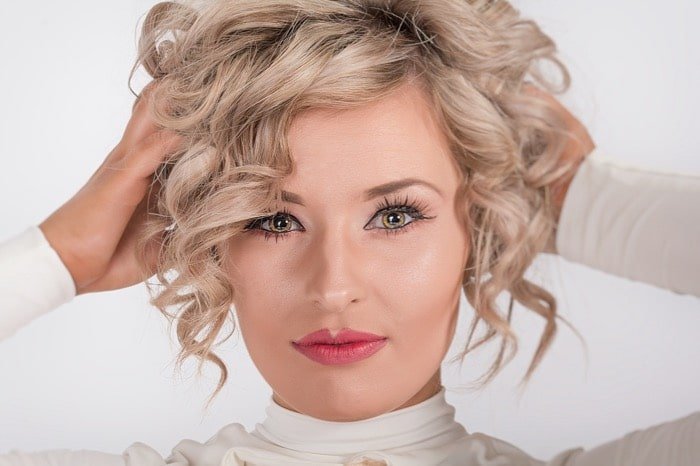
Unless you’ve had scalp problems in the past, you probably haven’t thought much about the skin under your hair.
It’s time to change that.
Why Scalp Care is the New Skincare
Have you noticed that many department and beauty store shelves now contain products that target your scalp?
If so, you may have wondered if such products are really necessary. After all, if you use a quality shampoo and conditioner, isn’t that all you need?
Scalp health matters because it’s directly correlated to your hair health. The skin on your scalp may also age faster than the skin on your face. It’s more exposed to direct environmental impacts—the sun shines directly on it, for instance—and it receives little to no help to deal with it.
You’ve probably noticed some changes in your hair as you age. Those are directly related to changes in your scalp. Oxidative stress caused by exposure to the sun’s UV rays can contribute to issues like drying, flaking, and itching—all signs that your scalp is beginning to struggle. Indeed, you may think you have dandruff when in truth, you simply have an aging scalp.
Signs Your Scalp Needs Help
How can you tell if your scalp needs better care? Here are a few signs:
- Your scalp feels dry and frequently itches.
- You notice flaking and/or what looks like dandruff.
- Your hair feels dry and brittle.
- You have frizzy hair.
- Your hair looks dull.
- Your hair is thinning.
- You’re losing more hair than usual.
Skin Conditions That Can Affect the Scalp
In addition to the above signs, some people may experience more serious scalp problems. Psoriasis, for example—an autoimmune condition that can affect the skin—can also affect the scalp. It appears as raised patches of scaly, flaky skin, and may resemble dandruff, though the scalp will also have a silvery sheen and dry scales.
Symptoms of scalp psoriasis may appear only in small patches, or they may spread to the ears, hairline, and neck. It may also cause a burning sensation, and lead to temporary hair loss in the affected areas.
The scalp can also suffer from the following common skin conditions:
- Contact dermatitis: This is an inflammatory condition that is caused by contact with an irritating substance or by something the person is allergic to. It causes itchy, scaly, red patches on the scalp, hairline, and ears.
- Age spots: Also called “seborrhoeic keratoses,” this creates benign growths on the scalp that look like brown or black patches or raised flat-topped lumps. They’re more common in people over the age of 50.
- Sensitivity: Those who have undergone medical treatments like chemotherapy or radiation may suffer from extreme scalp sensitivity, which can cause itching, burning, and redness.
- Lichen planus: This is an inflammatory disorder that can cause bald, scarring patches on the scalp. The cause is unknown.
- Lupus: This autoimmune disease can cause bald, scaly red patches on the scalp, and leads to permanent hair loss in those areas.
The scalp can also suffer from dead skin buildup and reduced cell turnover with age, just like the skin on your face.
5 Ways to Care for Your Scalp
Whether you’re currently struggling with scalp problems or simply want to prevent them, follow these five tips.
1. Stop using harsh products.
Check the ingredient lists on the products you use on your hair. Many of them are full of chemicals that can strip the hair of moisture while leaving behind potentially damaging effects. Start looking for more nourishing formulas designed to keep the scalp healthy.
2. Address dryness.
If you’re noticing dryness and flaking, take action. Many of our customers have asked us if they can use our products on the scalp. Our answer is an emphatic “yes!” The moisturizing oils, aloe, extracts, and more in CV Skinlabs products will help soothe and hydrate the scalp just as well as they do the skin. Particularly if you’re suffering from psoriasis on the scalp, you may find significant relief with our products.
We recommend using our Calming Moisture as an overnight mask. Simply rub it into the scalp, put on a hairnet, and go to bed. Rinse in the morning and you’ll notice a softer, more comfortable scalp (and softer hair, too!).
If you’re struggling with a burning sensation on your scalp, we recommend our Rescue + Relief Spray. Apply it directly to the affected area and gently rub it in. Use as frequently as needed to tame inflammation and reduce redness.
It may also help to look for moisturizing scalp and leave-in hair products that can help battle dryness. Avoid scalding showers, and try to blow-dry on a gentle setting.
Consider too that you may be shampooing too frequently. Try cutting back to a few times a week and see if that helps.
3. Exfoliate your scalp.
Yes, your scalp can suffer from dead skin buildup just as much as the skin on your face. You can easily exfoliate using an exfoliating shampoo treatment. We suggest those that use the natural power of sugar. The sugar granules can be massaged into the scalp to loosen dead skin, but they won’t damage hair. You can also make your own exfoliating treatment by mixing sugar with a natural carrier oil like jojoba or olive.
4. Try a scalp serum.
These are new on the market, but they can be effective. The good ones include natural moisturizers and extracts. You simply apply to wet or dry hair and massage into the scalp with your fingertips.
5. Minimize hair treatments.
Chemical treatments like relaxing, straightening, bleaching, and more can affect the scalp, as it comes into direct contact with the chemicals. If your scalp is struggling, avoid these treatments until it recovers. Then moisturize your scalp the night before your treatment to help shore up its defenses.
How do you care for your scalp?

